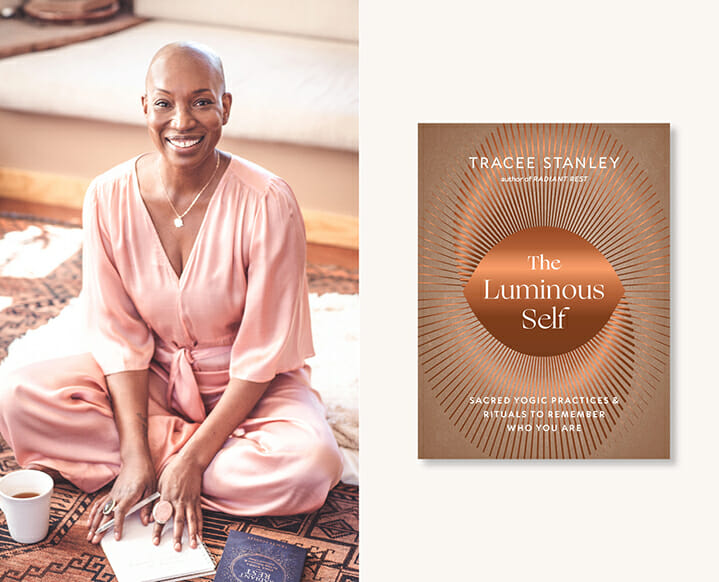Tracee Stanley is on a mission to make holistic wellness accessible for us all. Through yoga nidra, meditation and ancestral healing, the celebrated yogi and Radiant Rest author is dedicated to supporting friends and clients find a balanced and empowered approach to life. Pre-order her new book, The Luminous Self: Sacred Yogic Practices and Rituals to Remember Who You Are, coming this Fall!
Intentional rest as a practice has been growing in popularity in activism and wellness circles for the last decade. Now, corporations are hiring rest experts and guides to help facilitate company retreats and workshops to help employees embrace wellness through guided rest experiences.

Intentional rest is the practice of pausing daily life activities, letting go of “doing”, and reclaiming time for restful ease — for both the body and mind. In this day and age, we may need to reframe our relationship with rest so that we can begin to reclaim it as an integral part of our lives. Let’s explore the top 5 misconceptions about rest..
Tracee Stanley On 5 Misconceptions About Intentional Rest
01 Rest is a luxury | The idea of rest is often seen as a privilege reserved only for those who have worked hard to earn it or who live a life of leisure supported by material wealth.
Here’s the truth: rest is your birthright. This idea is counterculture because we have been conditioned to believe that we are not worthy of a simple and life-affirming gift to ourselves. If we think that we are not worthy of rest deep down, we may also believe that we are not worthy of wellness. A rested mind and body are pillars of well-being. When we experience resistance to rest—whether it is a judgment of ourselves or others—it’s time to look deeper. Rest is vital to being in a state of remembered wellness and the auspicious action we need to move us away from grind culture.
02 I don’t have time to rest | Time is the biggest adversary to rest and requires understanding how much time is needed to rest. Resting doesn’t require a 20-minute nap.
I suggest several 3-minute micro-rests throughout the day. If you can devote 3 minutes to close your eyes, lean back or lay down in a supine position in-between household responsibilities, picking up kids, and dropping them off to activities several times a day, before you know it you will have reclaimed 15-20 minutes of rest time.
03 I’ll miss out on something if I take a break | FOMO has bitten us all at one time or another. When the feeling of missing out arises, pause and ask yourself: What am I missing out on? What is this fear rooted in? Can I take this time to show up for myself and rest instead?
04 I’m already getting enough sleep | Sleep and rest are not the same. Sleep is a physiological need; your survival depends on it. But we could go an entire lifetime without intentionally resting.
Rest allows us to experience a sense of ease and spaciousness that helps us to improve our mental health, clarity, and experience joy. Our ancestors may have been denied rest because they were enslaved or indentured servants. Exploring how family history can inform our attitudes about rest is essential.
05 only sleep qualifies as rest | There are many types of rest. Spend time contemplating different kinds of rest. Notice which ones you resonate with:
+ Digital Rest: Taking time for a digital detox from social media, news and email. You can try this for one day, a weekend, or a month.
+ Creative Rest: The intentional immersion into places that allow inspiration, creativity, and imagination to bloom without the need to “produce something.” Creative rest allows for daydreaming and wonder, and it supports creativity for the sake of expression and not extraction.
+ Spiritual Rest: Inspires pausing for self-reflection, solitude and stillness. We can experience this as a daily morning walk in nature or an extended personal retreat.
+ Social Rest: Reclaiming time for yourself and your family by declining social engagements for some time.
Read Next: Learning To Let Go: How To Practice Yoga Nidra For Deeper Relaxation
Share the post “Tracee Stanley Debunks 5 Myths About Rest – Bye, Grind Culture”











